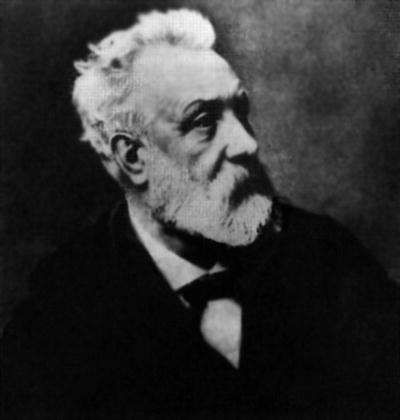Paris In The 20th Century Jules Verne Pdf Converter
Paris in the Twentieth Century was one of the first science-fiction novels written by, but the last to be published — in 1994, after lying forgotten in a safe for over a hundred and twenty-five years. While a good read, the novel isn't Verne's best. What makes it very interesting, however, is the accuracy of its many predictions about the future.
Verne wrote the novel in 1863, and it is set in the of 1960. Verne did a remarkably good job of predicting the world one hundred years in his future. Amusingly, one of the reasons his novel was not published for so long is that publishers originally. • Automobiles: About twenty years before the modern car note Automobiles had been around since 1769, but they were basically experiments in its most rudimentary form was invented, Verne predicted not only the widespread use of cars, but also infrastructures built around them.
PARIS IN THE 20TH CENTURY By Jules Verne Translated by Richard Howard. Paris in the twentieth century kindle. Random.Before he wrote Twenty Thousand Leagues Under the Sea, Journey to the Center of the Earth or Around the World in Eighty Days, Jules Verne wrote a short.Access article in PDF.

His Paris of 1960 was filled with automobiles powered by compressed air (cars that run on compressed air actually exist today, though they aren't very efficient). 'Refuelling' stations for compressed air were placed around the city, and the supplying the compression was very rich, powerful, and morally dubious.

Make of that, and the description of their appearance matching the styling of the typical American car of 1960 far closer than that of the typical French one, what you will. • Computers: Or sophisticated electro-mechanical calculators, at any rate. These are widely used by businesses. •: In a sense this novel technically could be considered the lost of cyberpunk; an young punk struggles against what he sees as a soul-destroying in a, and its attitude mirrors the future genera perfectly • The electric chair: Used to underscore the point of how de-humanizing and cruel technology had become. • The Internet and the telecommunications revolution: The novel describes calculating machines that can send information to each other remotely to help companies conduct business over great distances. Fax machines (as 'picture-telegraphs') are also described, and in general it's made clear that instant long-range communication is very important to the business of Verne's 1960s Paris.
• The Magnetic Train: Verne predicted a train that was propeled by a magnetic disc inside a long tube, that was itself propeled by compressed air. It also says that is the fastest transport there is. • Modern architecture: The Paris of Verne's 1960 was a skyscraper-filled, modern city. In real life, very few skyscrapers would be built in the city proper (though would be more than happy to take up the slack), but as shown by London, Frankfurt and just about every major American city, Paris would be the exception to prove the rule — the only reason why more skyscrapers weren't built in Paris was because they were outright banned after the construction of the butt-ugly. He even predicted. (Granted, in Verne's novel it's more of a statue dedicated to industry, science, and the like.) • Modern security systems: In one scene, the protagonist accidentally sets off an automatic security system in a bank.
Ppsspp game files download. Collection download fifa street 4 for ppsspp equipped with a very telling tips here. Whatever you find on this blog is guaranteed to meet, including the game apk, android ppsspp games and a full tutorial about android.
• Warfare: Less accurately, Verne predicted that the application of overwhelming technology to warfare would inevitably lead to world peace. Unfortunately this clearly hasn't come true. But on the other hand, the basic idea of seems similar.
And Verne's prediction that technology would make war impersonal, with soldiers killing remotely by operating the controls of machines, is more accurate now than ever. • The of the,, and related tropes to modern entertainment: Of course, even had plenty of sex and lewdness in his works, but Verne made some striking predictions about modern entertainment nonetheless. He envisioned crude stage plays that would replace 'real art', and in which a major point would be lowering the curtain at the last possible moment in scenes with sex and nudity. • Hippies: Yes, hippies. The protagonist is a and self-proclaimed poet who wears his hair long and resents working in the corporate world, though he's not as drugged-out or filthy as the type usually is. To be precise, he's kind of a dandy with similarities to a 20th century hippie.